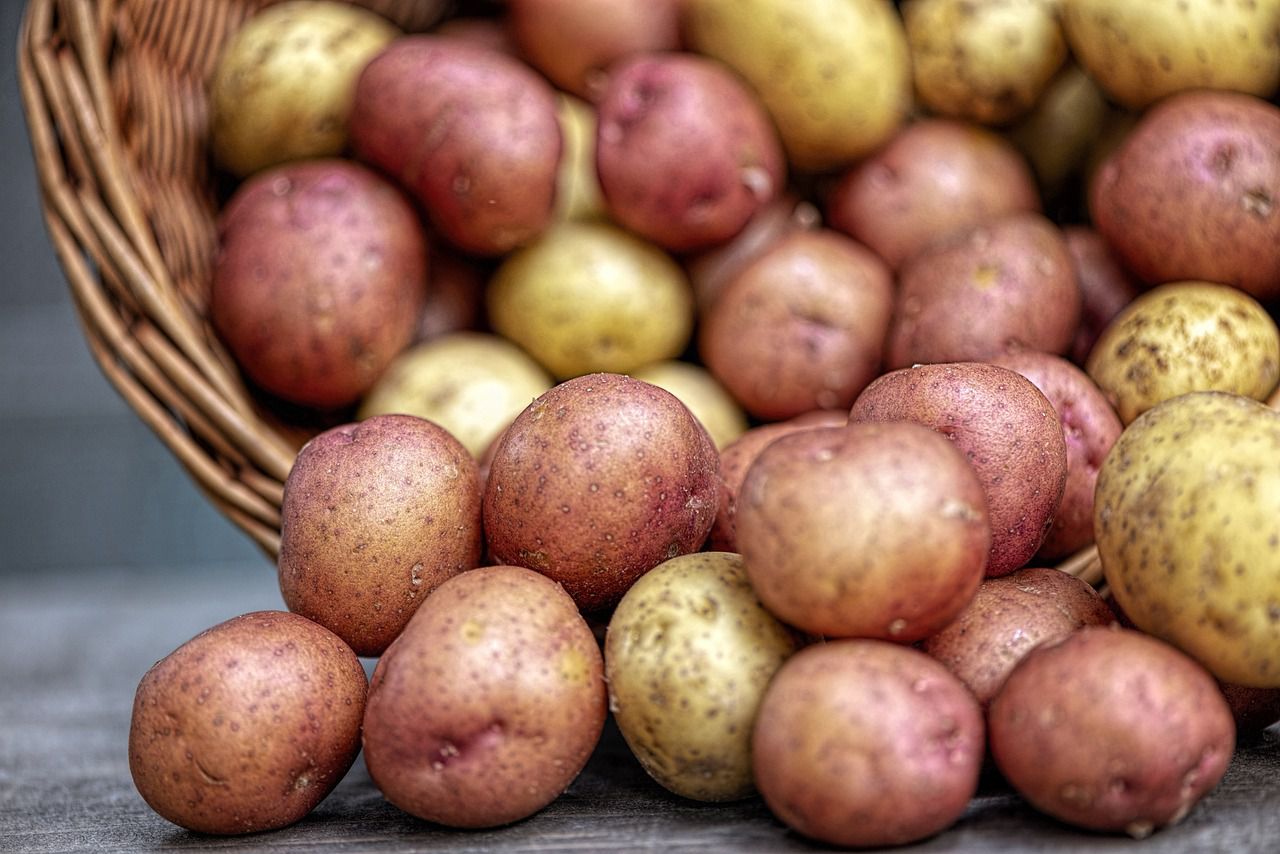Storing potato harvest: Gardening tips
There's no use in a huge potato harvest if you can't store it properly - so you should organize your storage really well!
To make sure your potatoes will last before you eat them, you need to provide perfect storage conditions and maintain them.
Here are a few tips on what you should do.
Cure Them
After you've harvested your potatoes, leave them outdoors in a cool, dark place (like a garage or cellar) for about 10 to 14 days.
This helps the potatoes toughen their skin and heal any cuts or bruises they might have gotten during harvest.

Check for Damage
Before storing, carefully inspect your potatoes. Remove any that have significant damage or cuts. Damaged potatoes can spoil and affect the others.
Choose the Right Container
Use a container that allows for good air circulation, like a crate, basket, or burlap sack.
Avoid using plastic bags or airtight containers, as potatoes need some airflow.
Keep Them Cool
Potatoes should be stored in a cool, dark place. Ideally, the temperature should be around 45-50°F.
Avoid storing them in the refrigerator because it's too cold for potatoes, and it can change their taste.
Darkness is Key
Keep the storage area dark or use a cloth or burlap sack to cover the potatoes. Light can make potatoes turn green and develop a bitter taste.
Check for Sprouting
Periodically check your stored potatoes for any sprouting or signs of rot. Remove any bad potatoes to prevent them from affecting the rest.
Humidity
Maintain some humidity in the storage area. You can place a damp cloth or towel nearby to help keep the air a bit moist.
Conclusion
Potatoes love good air flow and cool temperature, so keep them away from moisture and sunlight to make them last for months!
